watch now!
A place where I discuss all things related to toddlers and motherhood!
Subscribe to my Youtube channel
As a clinical psychologist, published author, and mother to two cheeky young children, I get it. I’ve spent YEARS researching and filtering through the noise online, so you don’t have to.
PARENTING TIPS
POTTY TRAINING
ANTIRACISM
PLAY
Blog Topics
SIBLING RIVALRY
SCREEN TIME
TANTRUMS
DISCIPLINE
Hi I'm Dr. Jazmine
How to Help Your Toddler Prepare for the New Baby
topics:
Adding a new baby to the family can have a huge impact. And this experience can feel so different from the first time around because now you have another child to consider. This can make you feel worried and anxious about how your first child will adjust to this big change in the family, and how you can best prepare your child for the new baby.
So I’m going to be sharing some simple tips to help your older child adjust to being a big brother or sister. Let’s dive in.
When should I tell my child I’m pregnant?
Deciding when to tell your child you’re pregnant is a personal decision and may be dependent on different factors including when you’re telling other family members, history of miscarriages, and other things.
For little kids like infants and toddlers, they’re going to have a hard time wrapping their minds around the concept of a baby growing in your belly. So typically it’s recommended you wait until you’re showing, which can vary anywhere from 12 weeks to 20 weeks or beyond.
- Once you’re showing, you can show them your belly and walk them through what’s happening.
- You can use correct anatomical terms like uterus. “Mommy has a uterus, which is where the baby is growing. And it’s going to grow and grow and grow. And in the fall, we’re going to have a new brother or sister.”
- Then invite them to ask questions.
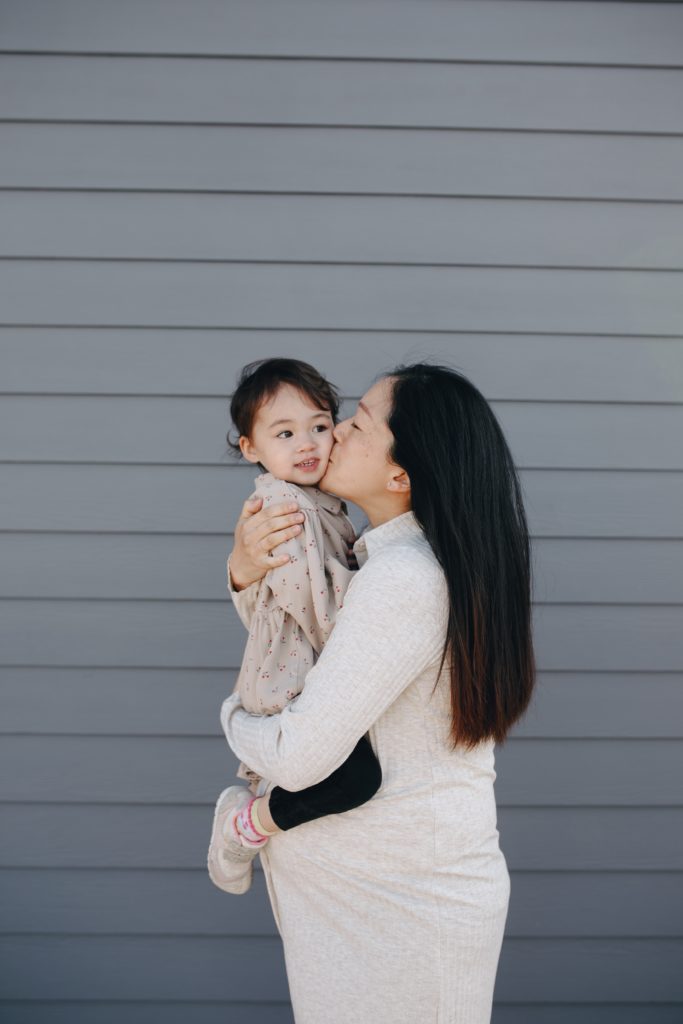
If you have an older child or a very verbal preschooler, expect them to ask you questions along the way.
Don’t be surprised if you share with them you’re pregnant and they’re like, “Okay,” and that’s it. And then weeks later or months later, they bring it up and ask questions, or they’re asking the same questions over and over.
Know this is normal, and it doesn’t mean that you need to change what you’re saying. It means your child is still trying to process what is going on.
When your child asks questions, you want to keep your language very simple and straight to the point. And if you’re going to use a big word like uterus, make sure you help them understand what it means. Start with a couple of sentences at a time, pause, and invite them to ask questions. You may also want to introduce child-friendly pictures to help them visually understand what you’re telling them.
You can say something like…
- “What questions do you have for me? I would love to know. Let’s talk about this.”
Tips to help your toddler prepare and adjust to their new sibling.
Read books about being a big brother or sister.
A great way to prepare your child for the new baby is to read children’s books about being a new sibling.
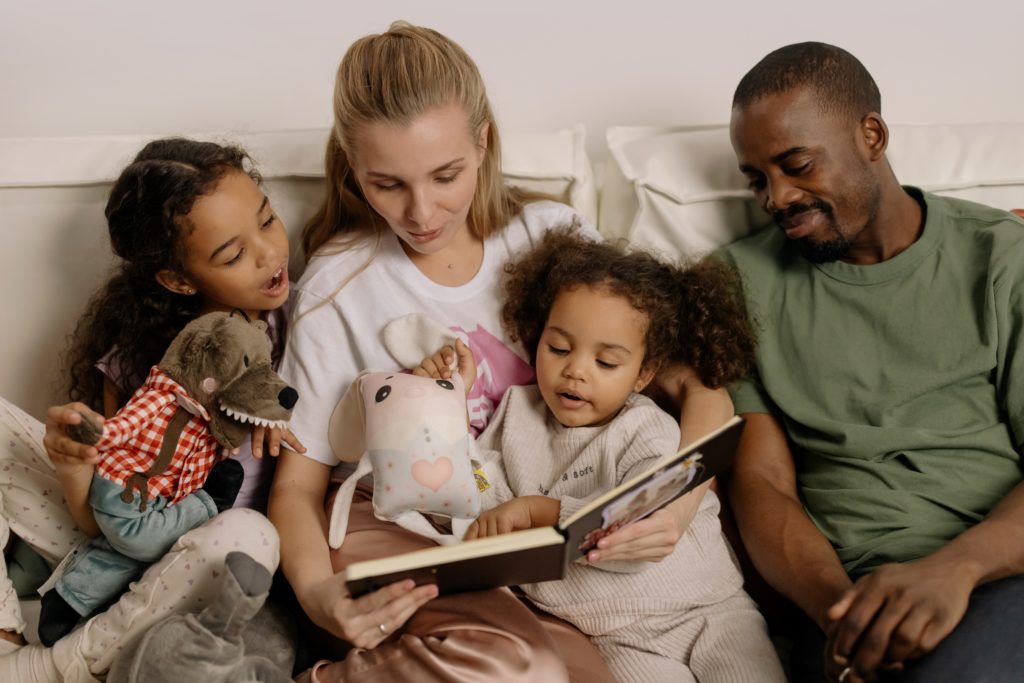
Children’s books are a wonderful way to help prepare your child for new changes coming up, keep that conversation going, and normalize the experience to help them feel like they’re not alone and other children go through this experience.
Here are some of my favorites:
- All About Babies by Polly Zielonka
- You Were the First by Patricia MacLachlan
- My New Baby by Rachel Fuller
- I Am a Big Brother (bilingual edition) by Caroline Jayne Church
- Noelle The Best Big Sister by Mikaela Wilson
Check out my list to find more great books to read with your child about becoming a big brother or sister.
Role-play what it’ll be like to have a baby in the house.
Another common recommendation I have for preparing children for change and transitions is to role-play.
Use your action figures or dolls or stuffed animals and play out what it’s like to have a new brother or sister. Play out what it’s like to be waiting in anticipation for the new baby. And play out what they can expect in the early days.
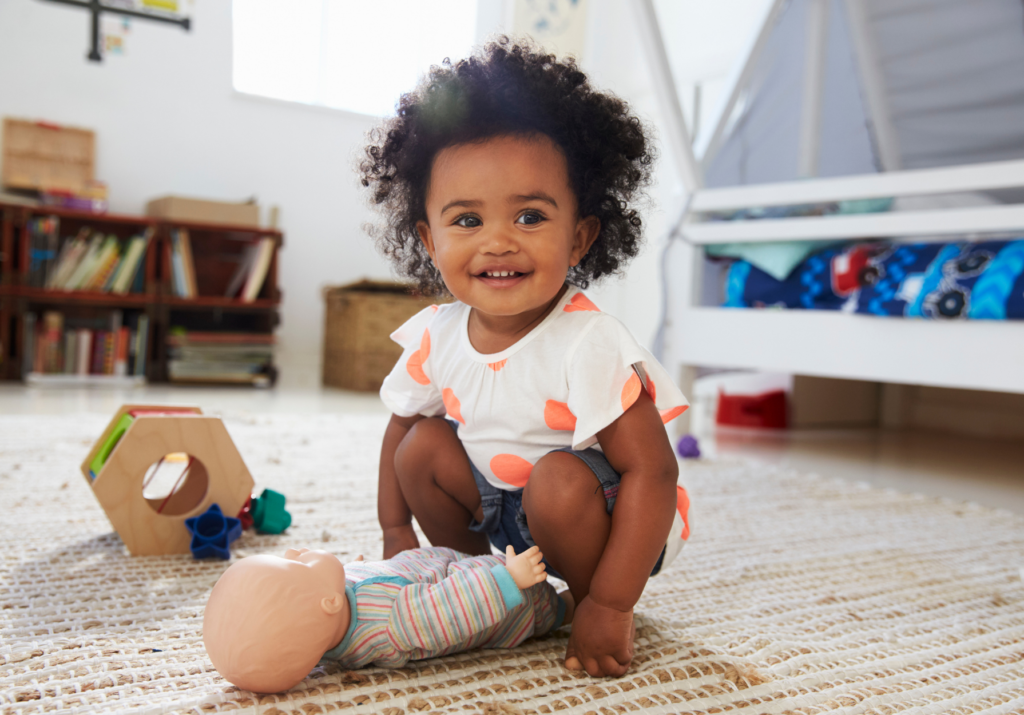
You want to help your child understand that in the early days with their new brother or sister, you won’t be able to play with them, and they will not be a playmate just yet. Play out how the new baby will sleep a lot, and they’re going to want to eat and poop and pee. They’re going to want you to give them nice cuddles and kisses.
So role-playing can be a great way to prepare your child for the new baby and to know what to expect. Preparing them for all that through play is great because it’s distanced. You’re not directly talking about their experience. You’re talking about somebody else. It’s a great way for you to connect with your child and open up the conversation about the new baby.
Expect your toddler to have mixed feelings about the baby.
Expect them to have mixed feelings about the new baby. Also, you want to anticipate that their feelings could fluctuate – one day they might be very excited and looking forward to it. And the next apprehensive or upset about that new change. Your child may even say, “I don’t want a new brother or sister.”
They may not even tell you with their words but use behaviors (like whininess, clinginess, and sassiness) to tell you they’re stressed and having a hard time coping with the upcoming changes.
So be prepared for your child to push back a bit because this is a huge change. Your child doesn’t know what to expect. Change is stressful. And there are a lot of unknowns.
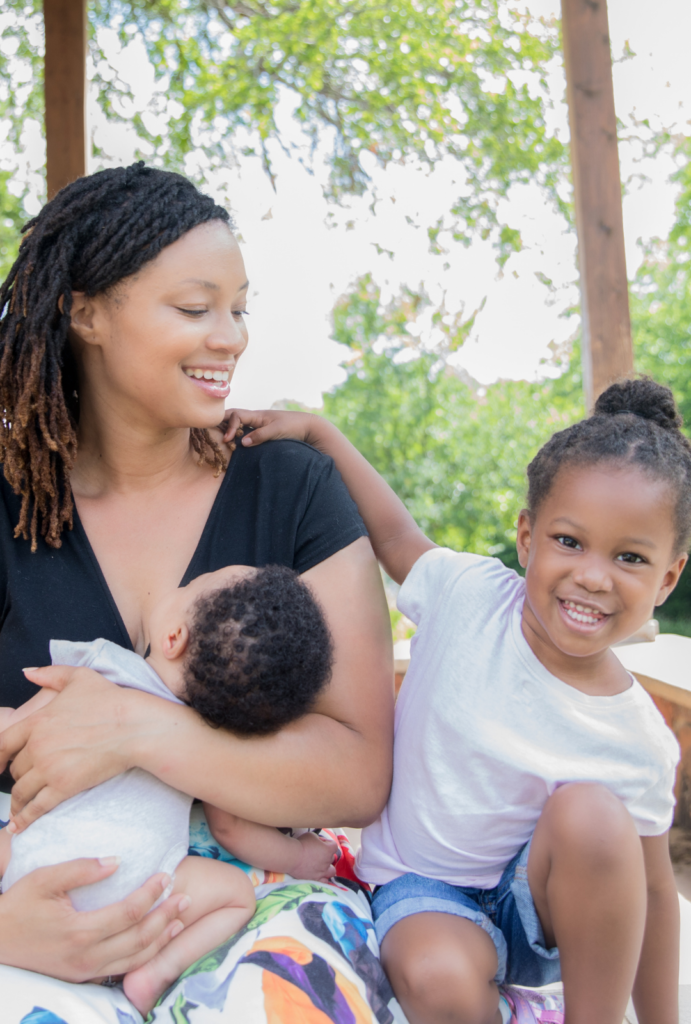
If they show some upset feelings, what you want to do is…
- Sit with it and reflect that back to them. “Wow. Yes. You’re upset. It’s okay to feel upset about this.”
- Normalize their feelings, validate that concern, and acknowledge that change is hard. “I get it. Change is hard. Mommy/Daddy feels nervous and is not sure of what to expect too. It’s so hard not to know what to expect next. And I get it. I see you. I hear you. And it’s okay. Thank you for sharing that with me.”
- Reassure them because one of the biggest concerns children have is that they’re going to be replaced by this baby brother or sister. “I get you. I see you. I understand change is scary and I’m not going anywhere. And my love for you is unconditional. And I will love you no matter what.”
Celebrate that your child feels comfortable enough to share these feelings and then convey to them that nothing they do or say will make your love go away.
And expect more behavioral issues, more tantrums as your child tries to process and understand such a big change and expect this to continue months (or even years) after the new baby comes.
To help combat these behavioral issues and your child’s stress from the change, provide your child with some extra TLC. This can look like…
- Extra cuddles and snuggles
- More reading time
- More one-on-one playtime
I know you’re pregnant and tired. Check out my video for some simple play activities you can do with your little ones when you’re crispy, exhausted, or burnt out. These activities don’t require any extra supplies. It’s things you already have around the house.
Talk about what will happen when you go into labor.
As you get closer to your delivery – a couple of weeks or a month out from your expected due date – you want to prepare your child for the process and potential separation. You want to let them know this is what’s going to happen.
- Set up a visual calendar with your expected due date. Of course, things can change, but to visually let them know the new baby is coming up soon.
- Tell them who will take care of them while you’re at the hospital. Help them understand who they’re going to stay with and why, and what to expect out of the separation. “So when I go to the hospital so the doctors can help me with delivering your new brother or sister, this is who you’re going to stay with.”
- Get that person prepared as well. Help your family member or friend understand what your child finds soothing and comforting and how to respond in certain situations.
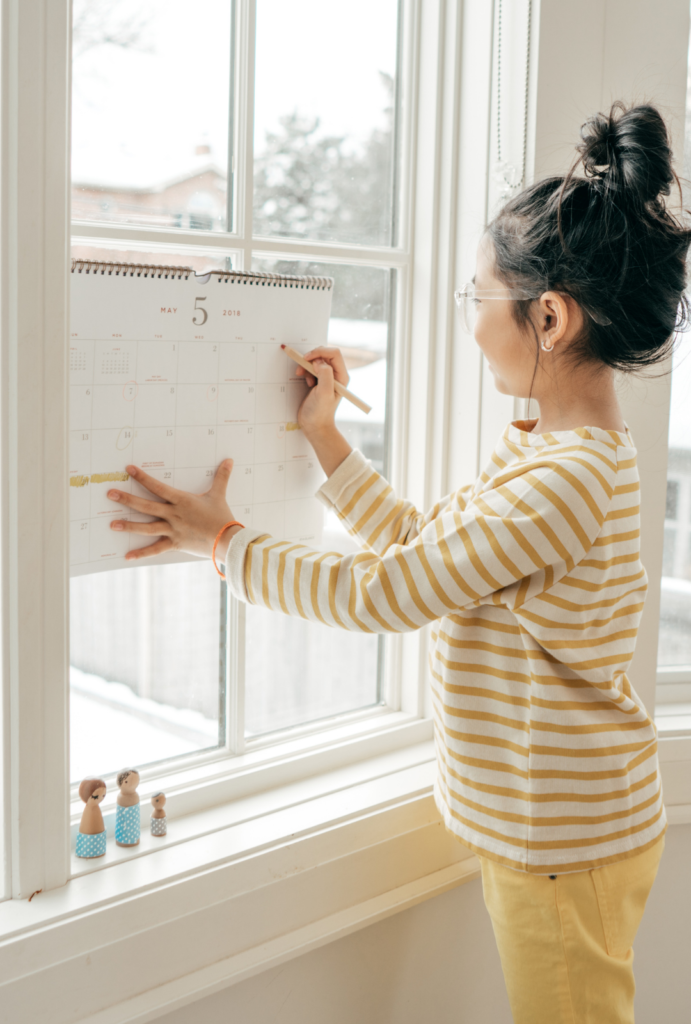
- Let your child know the ways you plan to stay in contact with them. Maybe it’s through FaceTime. Maybe they’ll get to visit. Maybe they can write you a letter. Maybe it’s a photo album you created of your favorite memories together and then they can refer to it during that separation and stress.
Have your toddler make a gift for their new brother or sister.
A few weeks leading up to your delivery, invite your older child(ren) to prepare a gift for their new sibling. You could say to them…
- “Hey, you’re going to meet your new brother or sister soon. What do you want to give them? What do you want them to have when you meet them?”
And then your child could make them something or pick out a toy or book to give. Some ideas are…
- Make a picture for the new baby
- Pick out a special toy they think their sibling will like
- Make them something special, like a craft
- Write the new baby a letter (you can help them with what they want to say)
And then you’ll prepare a gift from their little brother or sister to give to the older sibling when they meet. So they’ll do a gift exchange in their first encounter to help create that bond, that love between them, and that connection.

You’re now ready to help your child prepare for the new baby!
If you need more help with positive discipline, potty training, or preparing for the eventual sibling conflict, I have lots of resources to help you with that. I want you to feel prepared and ready for your next stage of parenting, and you’ll find all the tools you need in my courses and books.
You’ve got this,
Dr. Jazmine
P.S. Ever wonder what type of parent you are? Like do you tend to be more permissive, authoritarian, or do you strike a balance between love & limits ( authoritative)?
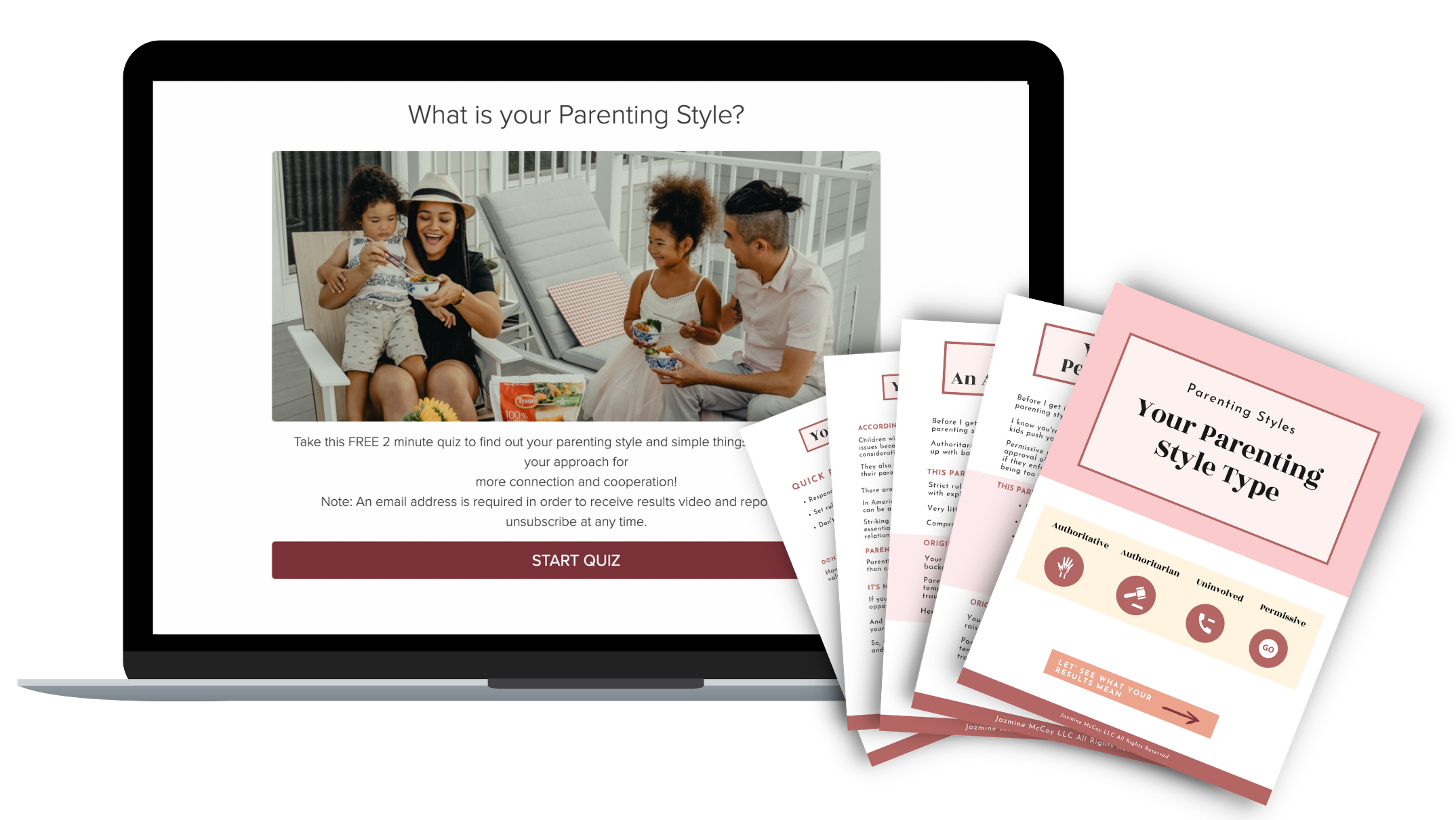
Take my Parenting Style Quiz and find out! All you need is 2 minutes and an email address.
Once you complete the quiz, I’ll send you a personalized report and video with your results. You’ll receive several resources that will help you grow to create more cooperation and connection.
Love this? Don’t lose it! Click below and save it to your Pinterest!

Leave a Reply Cancel reply
Copyright The Mom Psychologist® 2025
grab my free script pack!
explore
work with me
information
About
Blog
YouTube
Podcast
Privacy Policy
Terms of Use
Product Disclaimer
Contact
TMP Times (Newsletter)